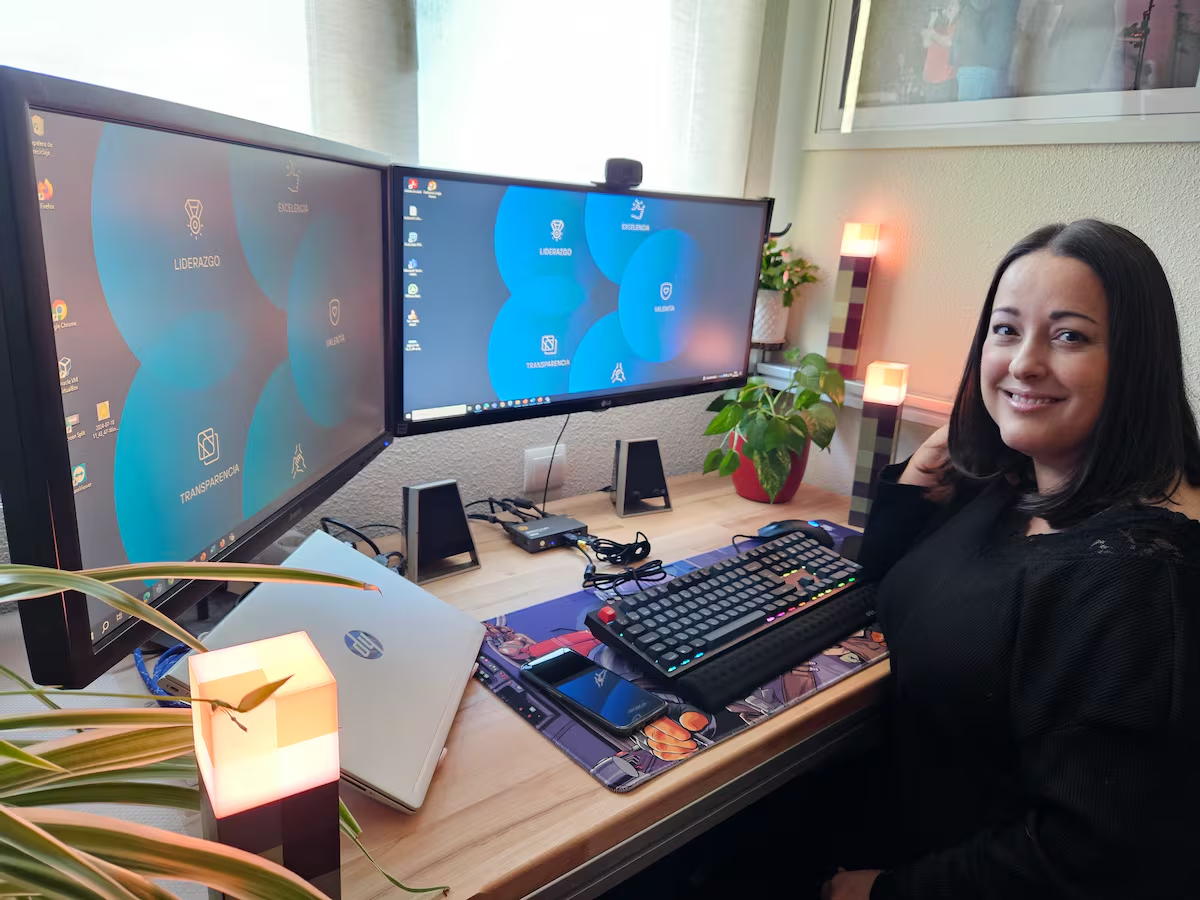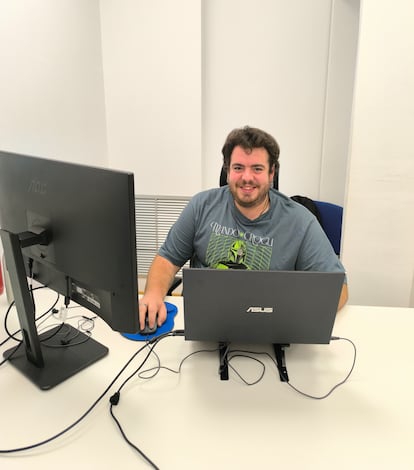
Technology provides them with the opportunity and they provide the talent. Repurpose yourself despite your physical, mental or emotional disability. It’s the decision that separates people with disabilities from skilled, better-paying jobs. Added to this are the hours of study and preparation to train on data, artificial intelligence, cybersecurity or the cloud. An extra effort which, far from slowing them down, motivates them to become a new pool in the face of the deficit of digital vacancies. A talent that contributes to achieving the European Union’s goal of reaching 20 million specialists in information and communication technologies in the next six years, as stated in the report. Digitalisation in Europe in 2024 of Eurostat.
To address this scenario, foundations and organizations focused on the employability of this group have come forward. They offer express technology training to anyone who knocks on their doors and collaborate with technology companies where they continue their preparation. “They can invest more than 1,000 hours in their training. A good result because they are people without previous higher education or experience in this field. They are trained in high-value jobs with growth possibilities and good remuneration (from 27,000 to 50,000 euros gross)”, says Mónica Cadenas, director of the Por Talento Digital program, at the ONCE Foundation.
Although many companies are reluctant to incorporate it “more for fear of the problems we can cause than for our contribution”, the technology aligns its value “and it begins to no longer matter who is behind the screen, as long as you solve it”, points out Arturo Fernández, blind since he was 15 and an accessibility consultant at the technology company Atos. Another company helping to train them is WatchGuard, whose global vice president of strategic partnerships, Miguel Carrero, insists: “We need them. Many of these profiles are excellent. Their attitude and desire to work are hard to find.” The manager urges companies to try them.
Cros Solutions is one of the companies that not only tested this talent, but also recruited Javier Gómez-Lobo via Linkedin. With an illness that prevents him from continuing to work as a manager in a barber shop and with a disability certificate, “I threw myself into computer security. I took a program from the ONCE Foundation and, surprisingly, I was better than I expected.” Gómez-Lobo is blunt: “It doesn’t matter if you don’t have an academic degree. It’s about wanting to learn.” For Rebeca Farré, her experience with cybersecurity “was an unexpected love.” A complex picture of autoimmune diseases forced her to reinvent herself and go from being a dental technician to looking for a place to integrate.
“I didn’t think about technology because, a priori, it generates fear and the risk of not being up to par. But the Impact program of the GoodJob Foundation showed me the error of my ways. Having good teachers and feeling supported in the process gave me power. They hired me at Telefónica Tech where I feel useful, productive and happy.” A program also followed by Brian Gil, current coordinator of the equipment and tasks of the security operations center of this foundation. “It’s been a lifesaver for my mental health issues. Cyber security requires full attention. While I’m working, my mind isn’t on things I shouldn’t be thinking about,” he says. That technology makes us equal is something that César López, general director of the GoodJob Foundation, never tires of repeating “and it shows that there are no qualified talents available. You just need to know how to learn how to use it to understand it”.
And he takes the opportunity to encourage study: «People with disabilities don’t know that technology is for them. However, 85% finish the three months of training. We monitor them for a year to ensure the success of their insertion. And they start from a minimum salary of 19 thousand euros gross per year. From then on.” The Vass Foundation also has content management, programming, design and control programs that confirm the accessibility of web pages. “Their participation makes the result more effective,” says its general director, Antonio Rueda. In the last six months they have trained 240 people and placed 52 of them in companies such as Repsol, Sanitas, Unicef or the DKV Foundation.
University students
The general disability law obliges companies with more than 50 employees to have 2% of these profiles among their staff. In case of incompatibility, alternatives are provided through donations or acquisition of goods or services. Something that most organizations have embraced. “There is a slight increase in companies starting to prioritize that 2%, especially in tech talent,” says Patricia de Urquía, general director of Bedistic, an employment center that recruits university students with disabilities (371,300 in Spain). “They are starting to see us as having potential beyond quota.” And he highlights two bottlenecks: “Middle managers, who slow down hiring, and the lack of a global culture to know how to adapt the position and live with disability.” Urquía works with companies such as Astra Zeneca, Mapfre, American Express or Hyatt, where “we place 115 people a year and there could be many more”.

Another company driving this talent is Airbus. With a staff of 120 professionals with disabilities, it has the Adapt group, “which identifies points of improvement that we adapt,” says Misael Pérez, director of inclusion and diversity. Among these, he highlights the recent hiring of a personal assistant to accompany Gabriel Barroso de María, a military engineer with a spinal cord injury, on trips. “I can’t drive and I appreciate that. But it’s not about goodwill, but about hotels, travel agencies or car rentals taking into account people with severe disabilities,” he says.
Virtual reality applications
Increasingly inclusive technology facilitates the employment of more than 400,000 people with intellectual and developmental disabilities. Of them, 2 out of 10 have a job. “It’s a long journey that is improving. Managing technology allows them, for example, to easily adapt to reading and understanding the world”, say sources from the Plena Inclusion España Confederation, which supports 150,000 disabled people from the 950 associations that make it up. The Vass Foundation insists on their pre-employment training with the Paso Adelante app, “with virtual reality they learn everything from taking the bus to preparing for job interviews,” says Antonio Rueda, its director.







